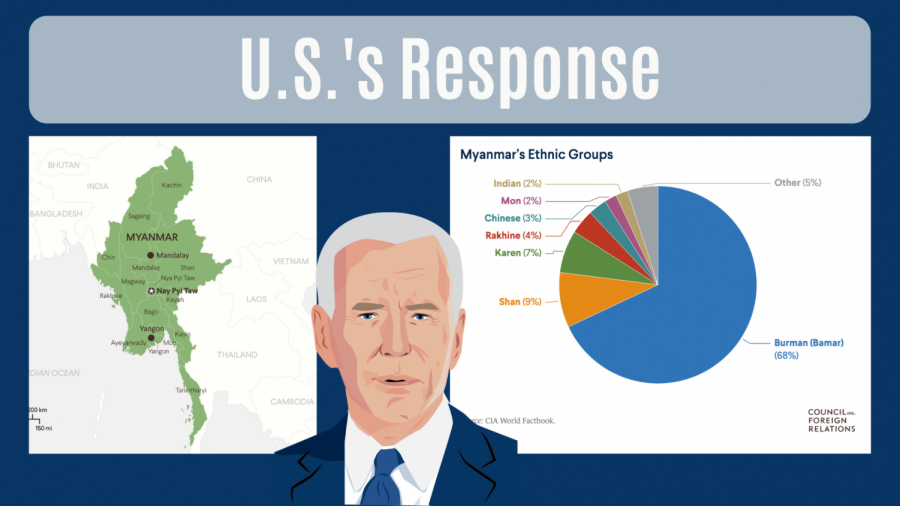U.S. and other nations condemn Myanmar coup
Biden ordered sanctions on top-ranked military leaders in the Southeast Asian country of Myanmar.
February 26, 2021
After just nine years of civilian rule and democracy, Myanmar is once again under the grips of a military regime after a successful coup toppled Myanmar’s civilian government on February 1st.
“I think this coup is very concerning for Myanmar and is a step backwards for democracy. The fact that the military could just come in and go against the people’s will is disturbing and I believe something needs to be done to restore democracy,” said Mark Lester (‘21).
This coup occurred just days after the general election, in which Ms Suu Kyi’s National League for Democracy (NLD) party won the election by a landslide. However, the opposition party backed by the armed forces, the Tatmadaw, demanded a recount of the vote, claiming widespread election fraud. Despite the election commission finding no evidence, the Tatmadaw seized the government, enacting a one year state of emergency.
The Tatmadaw moved swiftly throughout the government, imprisoning NLD party members, including Ms Suu Kyi, who had previously served as President in Myanmar, and 24 ministers and deputies. The Tatmadaw quickly replaced these members with high ranking military officials including the coup leader MinAung Hlaing, the commander in chief of the Tatmadaw, as the head of Myanmar’s new government.
Immediately, nations across the globe, including Canada, France, Japan, and many more have condemned the coup and demanded the release of detained officials. The United States specifically threatened to impose sanctions upon coup perpetrators, and President Joe Biden later approved an executive order creating a litany of new sanctions, allowing the U.S to go after coup members’ business interests and to freeze U.S assets to Myanmar’s government.
However, the United States lacks leverage in terms of non-militaristic avenues to pressure a return to civilian rule. With the U.S trade to Myanmar accounting for only 1.4 billion and foreign aid a modest 180 million, Myanmar is not particularly reliant upon the U.S. Instead, Myanmar is reliant upon countries like China, which have ten times more trade and much higher investment.
“I do believe that the U.S and its sanctions are a good start. However I don’t think that the U.S has a strong influence in Myanmar and because of this the U.S’s options are pretty limited,” said Suhas Nagar (21’).
Yet, China’s refusal to condemn the coup, along with the U.S’s lackluster economic influence, make it significantly harder for the U.S and allies of democracy to prevent the total collapse of Myanmar’s duly elected government.






